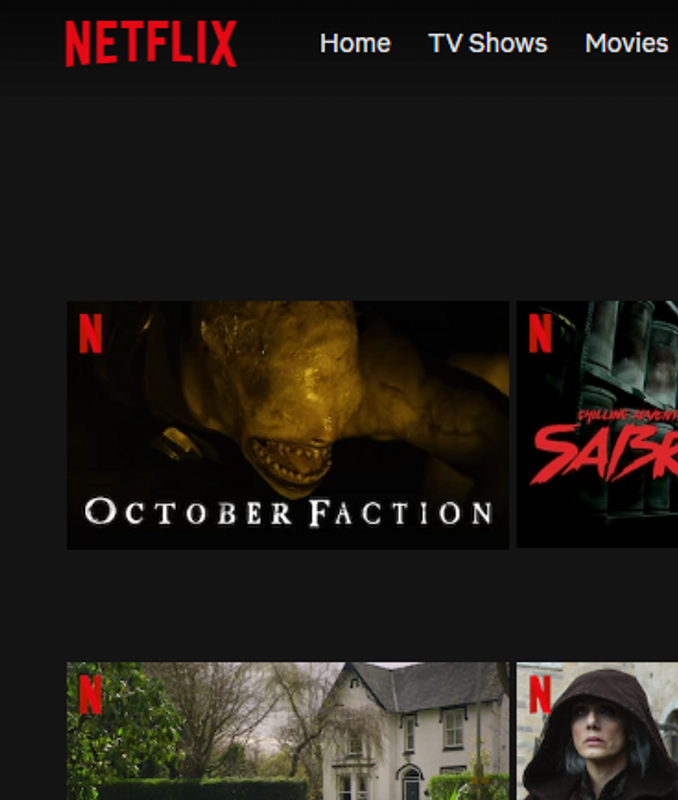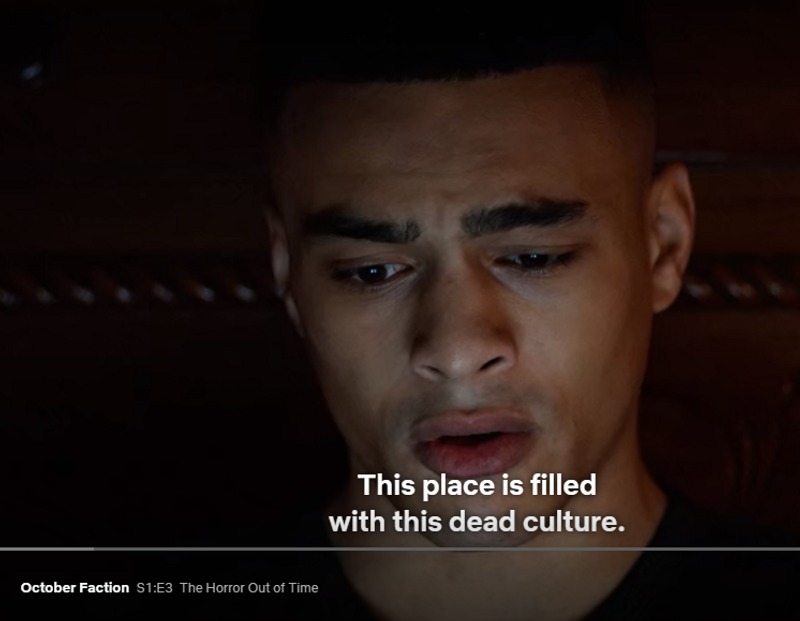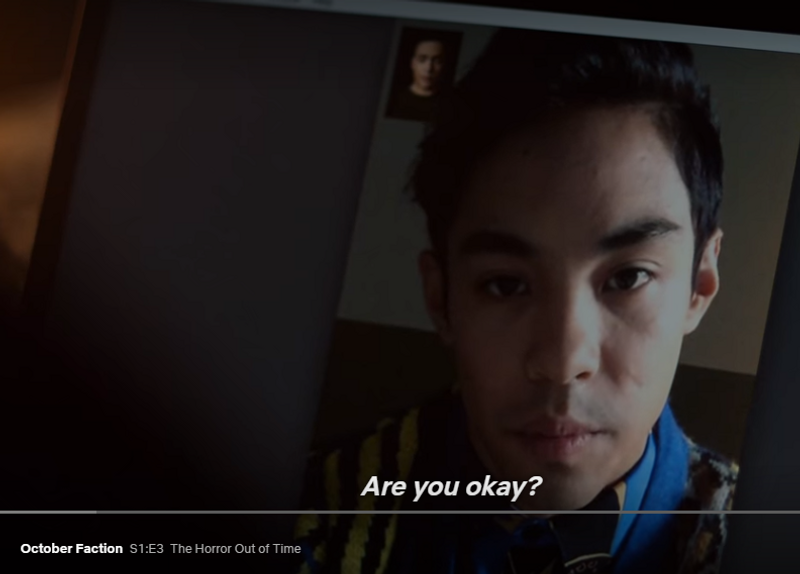Feb 23, 2020
October Faction: Great Showed Marred by Language Ignorance
Earlier this year, a new show dropped on Netflix and as usual it took my family a little time to get around to watching it. My mom enthused that it was good and story driven. Besides, "It's got Japanese!" my mom said and honestly the idea of people speaking the language I study in the context of a show that is otherwise in English intrigued me, not as much as the monster-fighting-spy-family angle, but still, I was intrigued.

In modern US Television history, there are a few examples of Japanese being spoken, mostly badly in examples from the 1990s that lacked proper pronunciation or intonation, usually just as a one-off gag in a random episode. Star Trek TNG's special nihongo moment can be found on youtube. More recently though still decades ago now, the TV show Heroes reset the standard with the spoken Japanese being a bigger part of the show and used with care, sometimes by people actually fluent in Japanese. Perhaps just having Masi Oka (and sometimes George Takei) on set helped make the rest of the Japanese spoken (by James Kyson at length and Jack Coleman in one scene) sounded real and natural. That isn't to say that those actors did not also commit to learning not just the sounds of the words in their lines but also the inflection in which they should be delivered. All in all, they payed respect to this non-English but very real language and it shows in the final product.

If I tried to make this sentence, I would use easier words than chosen here, and they would sound more natural because I HAVE HEARD JAPANESE WORDS BEFORE.
Sadly, this was not the case with The October Faction, in which teenagers attending a boarding school in Osaka for several months speak Japanese as if they had only read the words out of a book and never heard anyone say any of them aloud ever. Based on the language level of the subtitles, their vocabulary and grammar should be quite high, but their extremely awkward intonation is so distracting that I cannot tell you how accurate anything else is.
For those native English speakers who aren't getting how off-putting this is, I ask them to imagine someone who had never heard English before trying to replicate a basic sentence with their home language's phonemes, accenting all the sounds that should not be there.
This might turn a sentence like:
I love you, Jim
into
AhyEE raBUU YuuUU JeeMUU
This would be off-putting as heck if it came out of a character who was supposedly conversing in this language regularly with native speakers.
So much of this show was so good. The writing was interesting and not entirely predictable. Almost all of the acting was superb, though I will admit I found Alice's backstory episode less than perfect in terms of emotional engagement. All the background elements, like camera work and cinematography, were on point. So much of it was so good that my husband gave it a thumbs up even after being personally insulted by the butchered delivery of his native language.
Respect is what is lacking here and why this bothers me. The mistakes made represent a mono-lingual pigheadedness that comes from not studying enough of any foreign languages to grasp what you could be doing wrong.
Another easy example relates to context. Japanese is put together in such a way that frequently the situation tells you what the words mean, sometimes more than the words themselves. English does not do this to the same extent. filling in with more words to present the same information. In both cases, tone is important, but I would argue it can be more important in Japanese, at least in the case of single-word sentence-phrases.
Nope, not with that intonation.
The video-chat scene in episode three is where this comes up. At one point, the distant boyfriend, after hearing the troubles of his mate, says "Daijoubu." with the sad base tone you would expect out of a concerned but sad partner in English. Because it's Japanese, the flat intonation eliminates the question. The tone says this is not "Are you okay?" as indicated by the subtitles but "I am okay (and sad/angry/disappointed)" which simply does not mean the same thing.
If you're as upset by the lazy intonation as we were, don't worry. About halfway through the season, they start making friends and stop abusing this language, much to our relief.
So Netflix, Hollywood, and any other filmmakers, I beg you. Have some respect for foreign languages, especially the ones you haven't actually personally studied. Trust me, they're more complicated than you think.



1 Comment
TonetoEdo
on Feb 24
That Star Trek scene is bizarre! Poorly done languages are chronic in Hollywood movies. There’s scathing criticism of the use of Mandarin in the climactic scene in The Arrival. https://www.straitstimes.com/lifestyle/entertainment/crucial-to-make-foreign-languages-sound-right-in-movies